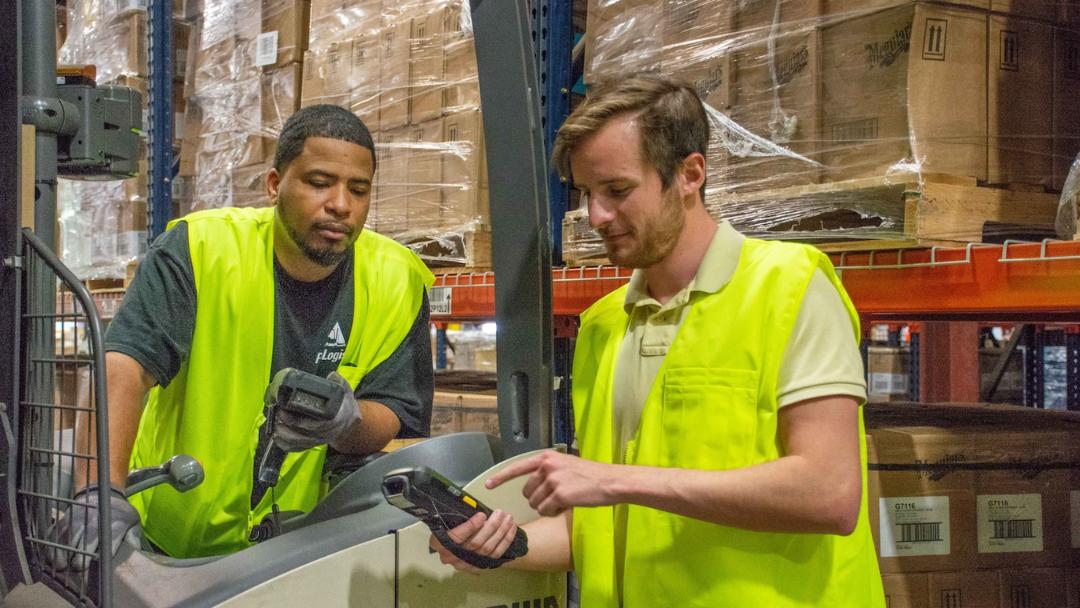If you’ve been laid off due to coronavirus, you aren’t alone.
In fact, you’re one of more than 33 million Americans who are currently unemployed, many of whom were subject to the coronavirus layoffs that have hit our nation’s workforce. That doesn’t make it any less scary when so many companies are in the midst of layoffs, but by taking action you can keep your life and career stable - and maybe even make yourself a better job candidate for the future.
Instead of letting coronavirus layoffs derail your career, take these 6 steps to stay on track and make the best of a tough situation.
Step 1: Stay calm and evaluate your situation
It’s okay to feel emotional when you’ve just been laid off - especially when it’s because of something completely out of your control like a global pandemic. But staying calm and evaluating your situation is key for determining how you need to adapt.
For most people, the biggest concern is financial. When you no longer have a paycheck to rely on, it’s critical to take stock of your finances, cut back on unnecessary expenses and stick to a strict budget. Resources like Motley Fool’s Budgeting 101 and Credit Karma’s budgeting tips can help you evaluate your spending habits and take stock of how far your savings (and unemployment - see step 2) can take you.
Step 2: File for unemployment
This goes hand-in-hand with the first step because unemployment is going to be a critical factor for your budgeting process. Unemployment benefits applications vary from state to state, but as a result of the recent CARES act (in response to coronavirus layoffs) there a few additional benefits:
- $600 more in weekly benefits, provided by the federal government.
- An additional 13 weeks of unemployment insurance.
- Eligibility for contractors and gig workers, who are typically not covered by unemployment insurance.
You can find all of the resources you need at careeronestop.org, a site sponsored by the U.S. Department of Labor, by simply selecting your state.
Step 3: Update your resume
An up-to-date resume can help you land your next job. If you’ve never written a resume before, there are plenty of resources available online to help you create a great one. Google Docs offers templates to help you get started, and there are online resources like Resume.com that help you quickly build a resume where all you have to do is fill in the blanks.
Remember that your resume is a potential employer’s first impression of you as a worker. Make sure to include your employment history, achievements, education, and certifications. In order to put your best foot forward, it’s also important to ensure your resume makes sense for the reader. Have a friend you trust proofread your work, and consider using an application like Grammarly to find any spelling or grammatical errors.
Bonus tip: if you’re already signed up for Bluecrew, you have a PDF resume built into your Bluecrew profile! You can check yours out in the app by clicking on Account in the menu and then selecting Resume.
Step 4: Use your network
If you’ve been laid off due to coronavirus, some of your best resources are the people you already know. Reach out to your family and friends for referrals or introductions to their companies. Referrals can be good for both you and your friends, as they often earn a bonus when you’re hired.
For example, with Bluecrew, Crew Members receive a bonus after the person they refer works their first shift. You can even keep track of your referrals and their status within the app. If you’re out of work, this is a real win-win situation. A friend who refers you gets a bonus when you start working, and you get fast-tracked to a new part-time or full-time job! Plus, in the future, you can help out your friends and earn referral bonuses as well.
So remember to reach out to your friends and tap into your resources. This can be one of the easiest ways to find a great new position!
Step 5: Search for essential jobs
If you didn’t find any job leads within your network, the next step is to start a broader search. Many essential businesses, like grocery stores and delivery services, are seeing a big rise in demand since coronavirus hit our communities. These companies are hiring like crazy to keep up, and even if it’s not your usual line of work, an essential job can help you pay bills and learn new skills while you’re waiting for more opportunities to come up.
How do you find an essential job? One of the easiest ways is to sign up for Bluecrew! We’re working with essential businesses in a number of locations to help keep their operations running smoothly, and we’re hiring new Crew Members every day with remote interviews. While most of these are warehouse jobs and delivery driver positions, we’ll also have a variety of hospitality and event staff jobs available when shelter-in-place is over. Because Bluecrew gives you access to a broad range of industries and employers, using our app to find work lets you tap into current positions while keeping a finger on the pulse of the job market. When non-essential jobs start coming back, you’ll be one of the first to know!
Step 6: Take advantage of opportunities
Being laid off is a difficult situation to be in, but there can be opportunities to level up your career while you’re unemployed. This can be a time to learn new skills, practice your interviewing abilities, and prepare yourself for when non-essential businesses reopen and start hiring.
Take some time to think about how you can make yourself a better job candidate, or what you need to learn to start the career you want. If your dream is to become a developer, business leader, or a marketer, you can find discounted online courses through Udemy, Coursera, and more. If you have a passion for cooking and want to boost your culinary skills, there are a number of online options available to learn - including some that are free (or at least have free trials). And if your biggest hurdle is the application and interview process, there are online options to help you refine those skills too, like these webinars from Career Confidential.
Whatever your situation, being laid off due to coronavirus is hard. But using these 6 steps, we hope we can help you get back on track and ready to make your next career move.


